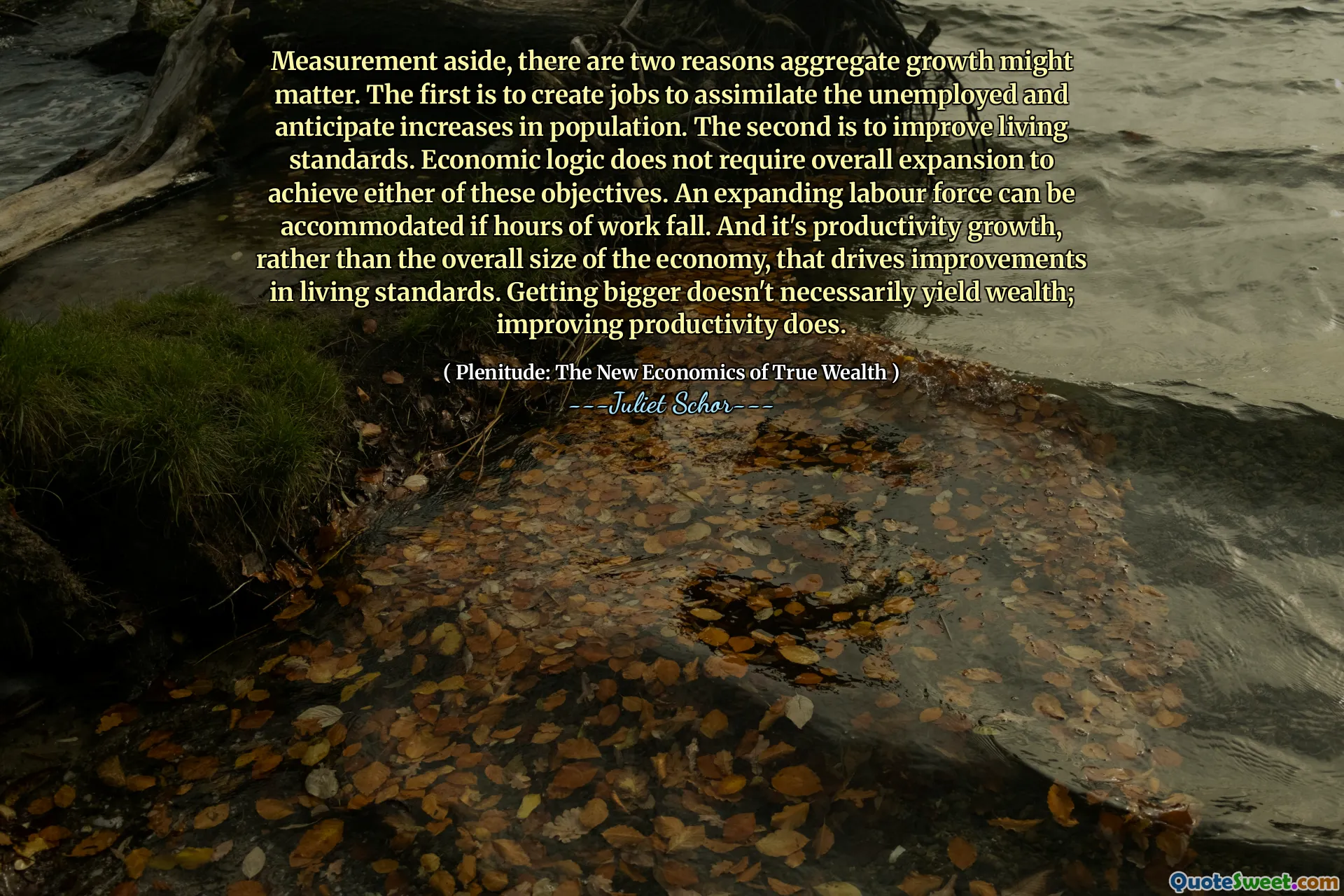
Measurement aside, there are two reasons aggregate growth might matter. The first is to create jobs to assimilate the unemployed and anticipate increases in population. The second is to improve living standards. Economic logic does not require overall expansion to achieve either of these objectives. An expanding labour force can be accommodated if hours of work fall. And it's productivity growth, rather than the overall size of the economy, that drives improvements in living standards. Getting bigger doesn't necessarily yield wealth; improving productivity does.
[As Juliet Schor highlights in 'Plenitude: The New Economics of True Wealth,' the emphasis on mere economic growth often obscures more meaningful indicators of societal well-being. The quote emphasizes that simply measuring overall economic expansion can be misleading if we fail to consider the quality and distribution of that growth. For instance, creating jobs isn't solely about increasing GDP; it’s about ensuring that employment opportunities are sustainable and truly benefit society, especially in the face of a growing population.
Schor challenges the traditional notion that larger economies inherently lead to better living standards. Instead, she advocates for a focus on productivity improvements—how efficiently resources and labor are used—since this drives better wages, improved workplace conditions, and enhanced quality of life without necessarily requiring a bigger economic footprint.
This perspective aligns with the idea that sustainable prosperity depends more on how well we utilize our resources than on the size of our economies. It suggests that policy and societal focus should shift toward innovation, technological progress, and equitable resource distribution, rather than solely prioritizing growth metrics. Such a shift could lead to a more resilient and inclusive economy, where well-being is decoupled from GDP figures, emphasizing true wealth—health, community, environment, and opportunity—over mere numbers.






